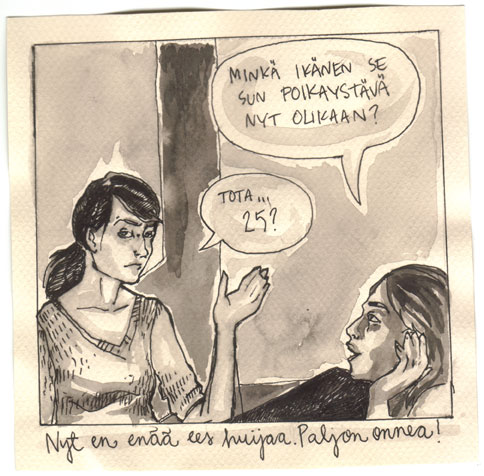The winners of Textplates’s Textpattern template competition have been announced. There’s some nice ones in there. My favorites are Serene and White and Wild.
March 2006
March 25, 2006
- Frog Review, the Click and Clack of web design. #
March 22, 2006
- PHP Architect: A practical tutorial for the Zend Framework. #
- Treehouse is a magazine for web developers. Looks nice, but: don’t I read too much of this stuff already? #
- Graybit converts webpages into greyscale to reveal possible accessibility contrast problems. #
- Mypapit has extended Kai Blankenhorn’s FeedCreator to support Atom 1.0 and enclosures. Blankenhorn’s last release was in November 2004. #
March 20, 2006
An entertaining juggling clip—and only three balls, no less!
I’ve never seen a juggling performance that’s been so tightly and well synchronized to music. (Generally, I avoid blogging video clips, but this one made me think of Elexa and all her juggling nerd friends, so I couldn’t resist.) Via Reddit.
March 16, 2006
Wetpaint makes some nice looking wikis
Wikis tend to fall into the same layout/design pit as many open source CMS systems: they all look drab and alike. Usability-wise this could, of course, be considered somewhat beneficial. However, the feature-driven functionality of these prototypical designs aren’t actually all that easy or obvious in the first place, so this doesn’t come near compensating their drawbacks. This is why I was quite impressed with what Wetpaint has done with their wiki templates.
- 25 Best License-Free Quality Fonts. Free and quality, together in fonts? Via Kottke. #
March 13, 2006
March 10, 2006
March 9, 2006
She’ll get it right this year
 A birthday card for me (today’s not my birthday, by the way).
A birthday card for me (today’s not my birthday, by the way).
The card reads, in Finnish:
“What was your boyfriend’s age again?”
“Um, 25?”
Now I’m not even wrong any more. Congratulations!
March 7, 2006
March 6, 2006
What Roosa wants for her birthday
What Roosa wants for her birthday. That’s a radiator. Only 3950,00 euros.
How to Digitize a Million Books
How to Digitize a Million Books:
“Ultimately, Clancy says, Google would like Book Search to give the same result as someone going to a library, looking in its stacks, and serendipitously finding a book that’s interesting or useful. One way to do this would be to link books to each other by categories and themes, he suggests. The task becomes more complicated, though, when linking works by Virginia Woolf, for instance, to criticisms of her work, works that inspired her, or authors who wrote during the same era. Designing algorithms that can effectively organize all of this new information, Clancy says, is ‘one of the grand challenges and will take many years.’”
“Reddy says CMU researchers are trying to tackle this challenge by using a ‘statistical approach’ to organizing the information. In this approach, Virginia Woolf’s stream-of-consciousness sentences, for example, would be analyzed by an algorithm that would find patterns based on sentence length, structure, and punctuation. This technique might find a work by James Joyce, one of Woolf’s influences — or that of an obscure author whose writings might otherwise never have been found.”
Mosquito noise
I didn’t know that the “shimmering” compression disturbance around edges in MPEGs is called mosquito noise. Is the mush in highly compressed JPEGs also called mosquito noise?
I expect this and other compression signatures will start showing up as intentional special effects.
March 5, 2006
March 1, 2006
Passclicks
Passclicks is an interesting alternative to traditional passwords. Passclicks are made up of a set number spots (“clicks”) in an image. The rationale is that people are better at remembering visual cues than random strings of letters and numbers.
I do wonder though, how “strong” passclicks can be considered? Taking into account the fact that most pictures will have certain focal points that most people will click, it might, statistically speaking, be quite weak.
Typing game
This typing game is fun. It reminds me of a ten finger typing trainer program — but unlike those, this one doesn’t care if you hit the wrong characters (and you never have to use the backspace to correct anything). Actually, the game could actually do harm to my typing skills.
I wonder how quickly one would have to hit random keys for it to be a viable strategy in the game.